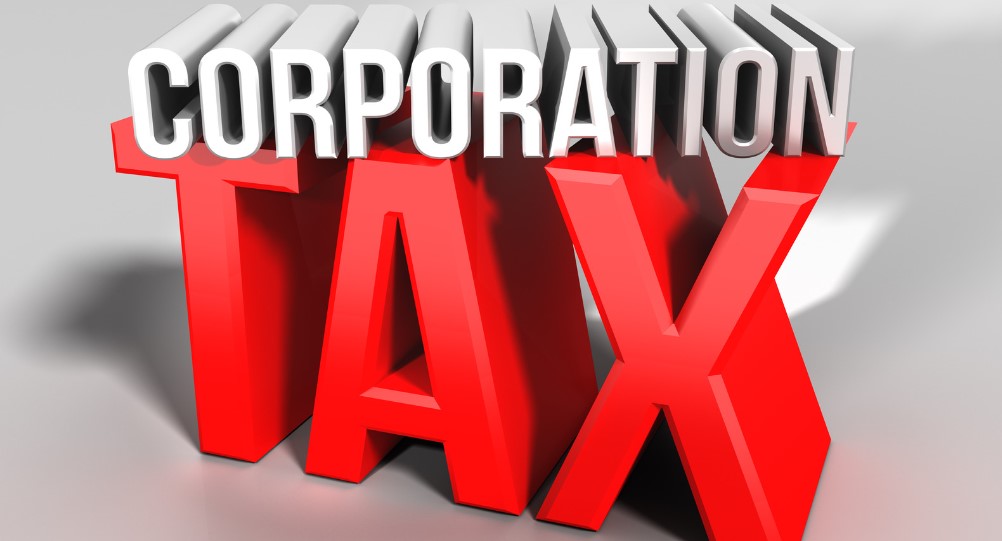Are you a startup in the UK wondering how to pay corporation tax? Look no further, as we guide you through the process of efficiently paying your corporation tax and meeting HMRC deadlines.
Understanding how to pay corporation tax is crucial for the financial health of your business. By following the right payment methods and meeting important deadlines, you can stay compliant and avoid penalties.
In this article, we will explore different methods of how to pay corporation tax, important deadlines, and provide guidance on navigating the payment process. Let’s dive in and ensure that your startup pays its corporation tax efficiently.
How to Pay Corporation Tax for Startup in the UK?
When it comes to paying corporation tax, it’s essential to understand the various payment methods available. Whether you prefer to pay online, through direct debit, bank transfer, or debit/credit card, we’ll help you make the right choice for your business.
HMRC, the tax authority in the UK, provides convenient online platforms for easy and secure corporate tax payments. By utilizing these digital options, you can streamline your tax processes and save time.
Stay tuned for the next sections of this article, where we’ll delve into corporation tax rates, who needs to pay corporation tax, payment deadlines, managing penalties, and the overall importance of fulfilling your financial responsibilities as a startup in the UK.
Understanding Corporation Tax and Its Rates
Corporation tax is a tax paid by UK businesses on their profits. It is an essential financial obligation that all companies must meet. To ensure compliance and effective tax management, it’s crucial to understand the concept of corporation tax and the rates that apply.
The current main rate for corporation tax is 25%. This rate is applicable to companies with profits above £250,000. However, if your business falls under the category of small profits, with profits of £50,000 or less, you can take advantage of the small profits rate, which is 19%. This lower rate provides a financial advantage to businesses in their early stages.
If your company falls within the profit range of £50,000 to £250,000, you may be eligible for marginal relief. Marginal relief is a progressive system that reduces the amount of tax you need to pay. It provides a means for businesses to gradually transition from the small profits rate to the main rate, making the tax burden more manageable during the growth phase.
Understanding the rates and thresholds that apply to your business is crucial for accurate calculation and payment of corporation tax. By remaining informed and up-to-date, you can ensure that you fulfill your tax obligations and optimize your financial resources.
Corporation Tax Rates Summary:
| Profit Range (£) | Tax Rate % |
|---|---|
| 0 – 50,000 | 19 (Small Profits Rate) |
| 50,001 – 250,000 | Progressive rates with Marginal Relief |
| Above 250,000 | 25 (Main Rate) |
Note: The table above summarizes the corporation tax rates for different profit ranges.

Understanding corporation tax and its rates is essential for startups and businesses in the UK. By familiarizing yourself with the tax brackets, you can effectively plan your financial strategies, optimize tax liabilities, and ensure compliance with HMRC requirements.
Who Needs to Pay Corporation Tax?
Corporation tax is primarily paid by businesses that are registered as limited companies. However, there are exceptions, and other types of businesses such as co-operatives, members clubs, societies, housing associations, and trade associations may also need to pay corporation tax. Sole traders and partnerships, on the other hand, pay income tax on their profits as part of their self-assessment tax return. If you register your business as a limited company, you will be automatically registered for corporation tax.
- Limited Companies: Limited companies, including co-operatives, members clubs, societies, housing associations, and trade associations, are required to pay corporation tax on their profits.
- Sole Traders: Sole traders are self-employed individuals who do not have a separate legal structure for their business. They pay income tax on their profits as part of their self-assessment tax return and are not subject to corporation tax.
- Partnerships: Partnerships are businesses owned and operated by two or more individuals. Like sole traders, partners in partnerships pay income tax on their share of profits as part of their self-assessment tax return and are not subject to corporation tax.
Note: When registering your business, it’s crucial to consider the tax implications and choose the most appropriate legal structure that aligns with your business goals and requirements.
Understanding your tax obligations is essential for complying with HMRC regulations and avoiding penalties. If you’re unsure about your business’s tax status or have questions about corporation tax, consulting with a tax professional can provide you with the guidance and support you need.
Comparison of Tax Obligations for Different Business Structures
| Business Structure | Income Tax | Corporation Tax |
|---|---|---|
| Limited Companies (including co-operatives, members clubs, etc.) | No | Yes |
| Sole Traders | Yes | No |
| Partnerships | Yes | No |

Corporation Tax Payment Deadlines and Methods
When it comes to paying corporation tax, it’s crucial to adhere to the designated payment deadlines and choose the right payment method for your business. In this section, we will explore the corporation tax payment deadlines and various methods you can use to pay your taxes efficiently and effectively.
Payment Deadlines
The payment deadline for corporation tax depends on your business’s accounting period, which usually aligns with its financial year. If your taxable profits are up to £1.5 million, you must settle your corporate tax bill within nine months and one day after the end of your accounting period.
For businesses with taxable profits over £1.5 million, payments are made in installments, and the deadlines may vary. It’s essential to consult HMRC guidelines or seek professional advice to ensure you meet the specific payment deadlines based on your tax liabilities.
Payment Methods
You have multiple options available for paying corporation tax conveniently. Here are some common payment methods:
- Direct Debit: Set up a direct debit with HMRC to automate your corporation tax payments. This method ensures timely payments without the need for manual intervention.
- Bank Transfer: Transfer funds directly from your business bank account to HMRC’s designated account. Ensure you use the correct payment reference to facilitate smooth processing.
- Debit/Credit Card: Use your debit or credit card to make online payments through HMRC’s secure payment portal.
By utilizing these payment methods, you can choose the most convenient option for your business and ensure your corporation tax payments are made on time.
| Payment Method | Processing Time |
|---|---|
| Direct Debit | 3 working days |
| Bank Transfer | 5 working days |
| Debit/Credit Card | Immediately |
Table: Processing Times for Corporation Tax Payment Methods
Stay Compliant and Avoid Penalties
It’s important to note that failure to meet corporation tax payment deadlines can result in penalties and interest charges. Make sure to mark these deadlines in your calendar and take proactive measures to avoid any late payments.
If you encounter financial difficulties and are unable to pay your corporation tax bill on time, you should contact HMRC immediately. They may offer a Time to Pay arrangement, allowing you to spread your payments over a longer period. However, it’s essential to engage with HMRC promptly rather than ignoring the tax debt, as this can exacerbate the situation.
By understanding the payment deadlines and utilizing the available payment methods, you can effectively manage your corporation tax obligations and remain compliant with HMRC regulations.
Managing Corporation Tax Payments and Penalties
Late payments of corporation tax can result in penalties and interest charges. HMRC has strict regulations regarding tax payment deadlines, and failure to comply can lead to fines.
If you’re unable to pay your corporation tax bill on time, it’s important to contact HMRC and set up a Time to Pay arrangement as soon as possible. Ignoring the debt will only make the situation worse. It’s crucial to understand the consequences of late payments and the options available for managing your corporation tax payments.
Consequences of Late Payments
When you fail to pay your corporation tax on time, you may face:
- Penalties: HMRC imposes corporation tax payment penalties based on the amount of tax owed and the length of the delay.
- Interest Charges: Late payments accrue interest at a daily rate, leading to additional financial burden on your business.
- Loss of Reputation: Late payments can harm your business’s reputation with suppliers, lenders, and other stakeholders.
It’s important to note that the penalties and interest charges can accumulate over time, significantly increasing the amount you owe. Therefore, taking prompt action is crucial to prevent further financial strain.
Setting Up a Time to Pay Arrangement
A Time to Pay arrangement is a formal agreement you can make with HMRC to spread your corporation tax payments over a longer period. This arrangement allows businesses in financial difficulty to manage their liabilities in a more manageable way.
When contacting HMRC to set up a Time to Pay arrangement, you will need to provide:
- Details of your company or business
- Reasons for your financial difficulty
- Evidence of your financial situation, such as cash flow statements or bank statements
- Your proposed payment plan, including the duration and amounts
HMRC will review your request and may request further information. It’s crucial to be transparent and demonstrate your willingness to meet your tax obligations.
By setting up a Time to Pay arrangement, you can:
- Reduce the immediate financial burden of paying your entire tax bill in one lump sum
- Spread your payments over a longer period, making them more manageable
- Avoid further penalties and interest charges by demonstrating your commitment to resolving the debt
Remember, it’s essential to take action as soon as you realize you cannot make the payment on time. Ignoring the issue will only exacerbate the financial consequences and make it harder to rectify the situation.

| Penalty Type | Amount |
|---|---|
| First late payment | 5% of the unpaid tax |
| After 6 months | Additional 5% of the unpaid tax |
| After 12 months | Additional 5% of the unpaid tax |
Conclusion
Paying corporation tax is a vital financial responsibility for startups in the UK. To ensure compliance and avoid penalties, it is crucial to understand the process, deadlines, and payment methods associated with corporation tax. This article has provided comprehensive guidelines to help you navigate the complexities of paying corporation tax efficiently and meet HMRC requirements.
By staying proactive in managing your tax payments and seeking expert advice when needed, you can effectively fulfill your financial responsibilities. Remember, timely and accurate corporation tax payment is key to maintaining the financial health of your business and upholding your legal obligations.
As you embark on your journey as a startup, keeping a close eye on your corporation tax payments is essential. It is recommended to establish a robust system for monitoring deadlines, exploring various payment methods, and staying updated on any changes in legislation.
Being well-informed and proactive in managing your corporation tax obligations will help you avoid unnecessary stress, maintain compliance, and focus on growing your business. Embrace the financial responsibilities that come with running a startup in the UK, and ensure that your corporation tax payments are accurate, timely, and meet HMRC regulations.




